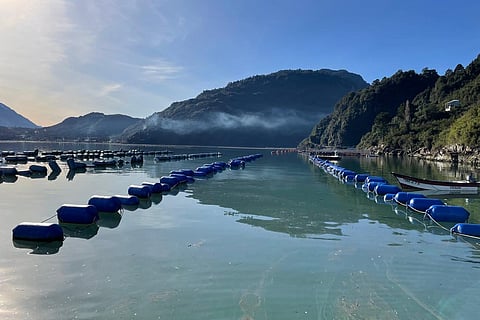

The book is titled 'The Aqua-Adapt Framework for Aquaculture Climate Change Adaptation.'
Universidad Concepción
The Food and Agriculture Organization (FAO) has published the 'Aqua-Adapt Framework for Aquaculture Climate Change Adaptation', developed in collaboration with the Interdisciplinary Center for Aquaculture Research (Incar) at the University of Concepción in Chile.
This document includes an analysis of studies on the adaptation of the aquaculture sector to climate change, a strategy and adaptation tools, and two case studies that exemplify these proposals.
These two scenarios focus on salmon farming and mussel farming, which improved the framework for testing adaptation technologies and enhancing their practical applicability.
The definitions in Aqua-Adapt are based on the assessment reports of the Intergovernmental Panel on Climate Change (IPCC).
The editors of the book, Incar's Principal Researcher, Dr. Doris Soto, and FAO Fisheries Officer, Fernanda Garcia-Sampaio, have stated that "the vulnerability of aquaculture to climate change requires urgent and practical adaptation strategies."
For this reason, Aqua-Adapt helps aquaculture stakeholders, from communities to governance structures, make informed decisions that reduce risks and enhance long-term aquaculture resilience.
"Various studies have highlighted the need for more climate-resilient practices and clearer guidance to identify effective technologies and innovations, and this is the focus of the publication," they emphasized.
